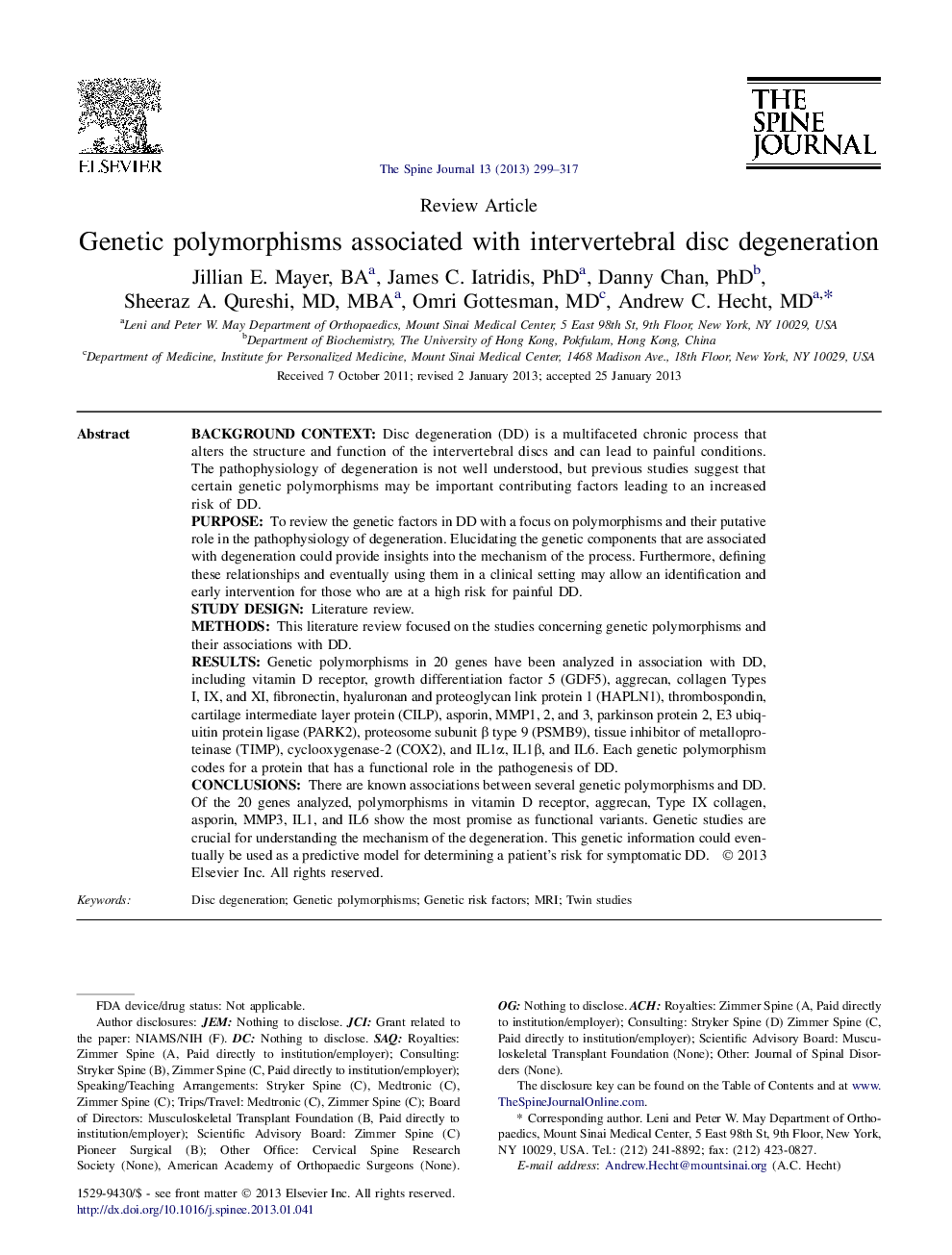| کد مقاله | کد نشریه | سال انتشار | مقاله انگلیسی | نسخه تمام متن |
|---|---|---|---|---|
| 4097064 | 1268579 | 2013 | 19 صفحه PDF | دانلود رایگان |

Background contextDisc degeneration (DD) is a multifaceted chronic process that alters the structure and function of the intervertebral discs and can lead to painful conditions. The pathophysiology of degeneration is not well understood, but previous studies suggest that certain genetic polymorphisms may be important contributing factors leading to an increased risk of DD.PurposeTo review the genetic factors in DD with a focus on polymorphisms and their putative role in the pathophysiology of degeneration. Elucidating the genetic components that are associated with degeneration could provide insights into the mechanism of the process. Furthermore, defining these relationships and eventually using them in a clinical setting may allow an identification and early intervention for those who are at a high risk for painful DD.Study designLiterature review.MethodsThis literature review focused on the studies concerning genetic polymorphisms and their associations with DD.ResultsGenetic polymorphisms in 20 genes have been analyzed in association with DD, including vitamin D receptor, growth differentiation factor 5 (GDF5), aggrecan, collagen Types I, IX, and XI, fibronectin, hyaluronan and proteoglycan link protein 1 (HAPLN1), thrombospondin, cartilage intermediate layer protein (CILP), asporin, MMP1, 2, and 3, parkinson protein 2, E3 ubiquitin protein ligase (PARK2), proteosome subunit β type 9 (PSMB9), tissue inhibitor of metalloproteinase (TIMP), cyclooxygenase-2 (COX2), and IL1α, IL1β, and IL6. Each genetic polymorphism codes for a protein that has a functional role in the pathogenesis of DD.ConclusionsThere are known associations between several genetic polymorphisms and DD. Of the 20 genes analyzed, polymorphisms in vitamin D receptor, aggrecan, Type IX collagen, asporin, MMP3, IL1, and IL6 show the most promise as functional variants. Genetic studies are crucial for understanding the mechanism of the degeneration. This genetic information could eventually be used as a predictive model for determining a patient’s risk for symptomatic DD.
Journal: The Spine Journal - Volume 13, Issue 3, March 2013, Pages 299–317